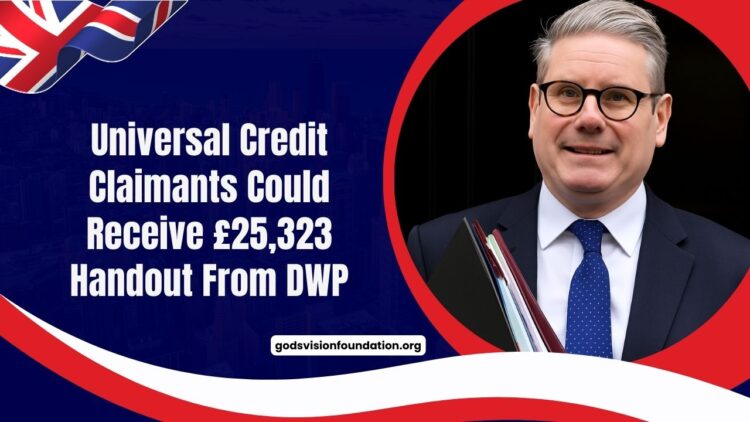The Department for Work and Pensions (DWP) has revealed that some Universal Credit claimants could be entitled to a handout of up to £25,323 a year.
This figure is linked to the benefit cap rules and the maximum amount a household can claim depending on circumstances and location. While not all claimants will qualify for the highest amount, the update has drawn attention to how much financial support the benefit system can provide under certain conditions.
How the £25,323 Handout Works
The maximum award of Universal Credit is subject to the benefit cap. This cap limits the total amount of benefits a household can receive unless they are exempt.
For couples or lone parents, the cap is set at £1,835.00 a month outside London and £2,110.25 in Greater London. For single claimants without children, the cap is £1,229.42 per month, rising to £1,413.92 in Greater London.
When calculated annually, this means that households in London receiving the maximum capped amount could receive £25,323.
Benefit Cap Breakdown
| Household Type | Monthly Cap (Outside London) | Monthly Cap (Greater London) | Annual Equivalent |
|---|---|---|---|
| Couples/Lone Parents | £1,835.00 | £2,110.25 | £25,323 (London maximum) |
| Single Claimants (No Children) | £1,229.42 | £1,413.92 | £16,967 (London maximum) |
This cap ensures that benefit amounts are limited, but not everyone will be subject to it.
Who Is Exempt from the Benefit Cap
The benefit cap does not apply if you, your partner, or your child receive one of the following:
- Disability Living Allowance (DLA)
- Child Disability Payment
- Personal Independence Payment (PIP)
- Adult Disability Payment
- Attendance Allowance
- Carer’s Allowance or Carer Support Payment
- Armed Forces Independence Payment
- Industrial Injuries Benefits
- Guardian’s Allowance
- Limited Capability for Work-Related Activity element in UC
- Employment and Support Allowance (with support component)
- War Disablement Pension or Armed Forces Compensation Scheme payments
Additionally, you won’t be affected if:
- You or your partner earn at least £846.56 per month combined.
- You are unemployed after working continuously for 12 months or more, in which case you’re exempt for nine months.
Extra Support Through Discretionary Housing Payments
If you are affected by the benefit cap and struggling with housing costs, you may be able to apply for a Discretionary Housing Payment (DHP) from your local authority. In Scotland, the government has committed to mitigating the impact of the benefit cap by offering DHPs to eligible households.
Conditions and Claimant Commitment
Universal Credit comes with certain work-related requirements, and claimants may face sanctions if they do not comply. To receive payments, you must accept a claimant commitment, which places you into one of four groups depending on your circumstances:
- All Work-Related Requirements Group – Expected to search for and be available for full-time work.
- Work Preparation Group – Required to take steps to prepare for work, such as training or skills development.
- Work-Focused Interview Group – Must attend regular interviews with a work coach.
- No Work-Related Requirements Group – Exempt from job search due to health issues or caring responsibilities.
Failure to meet these conditions could lead to reduced or delayed payments.
The DWP’s Universal Credit update for September 2025 confirms that households could receive up to £25,323 annually, especially in London where the benefit cap is higher.
While this figure represents the maximum payout, most claimants will receive less unless they meet specific criteria. Importantly, many vulnerable groups are exempt from the cap, ensuring fairness in the system.
With additional support like Discretionary Housing Payments, the DWP aims to provide a safety net while balancing affordability and accountability in the welfare system.
FAQs
Who can receive the full £25,323 handout?
Households in Greater London, such as couples or lone parents, can receive this amount if they qualify for the maximum capped Universal Credit.
Do all Universal Credit claimants get the same amount?
No. Payments depend on household type, location, and exemptions. Most claimants receive less than the capped maximum.
How can I check if the benefit cap affects me?
You can check your Universal Credit online account or contact the DWP to see if the benefit cap applies to your case.

